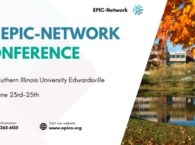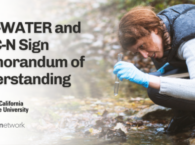Ilona Ballreich advocating for the entire network and their communities
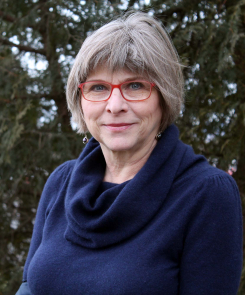
Ilona Ballreich
Program Manager
Sustainable Communities Collaborative
ixb20@psu.edu
814-865-2291
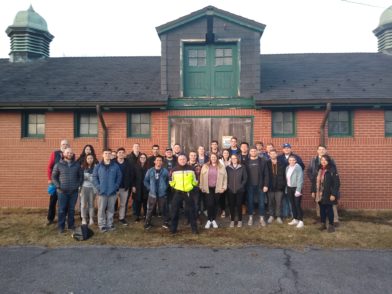
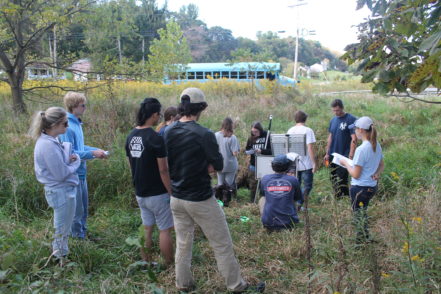
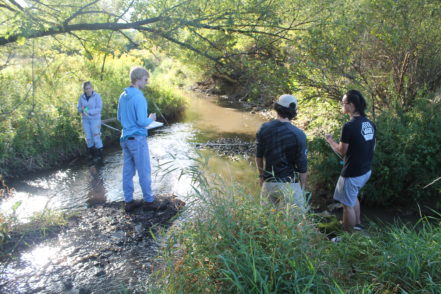
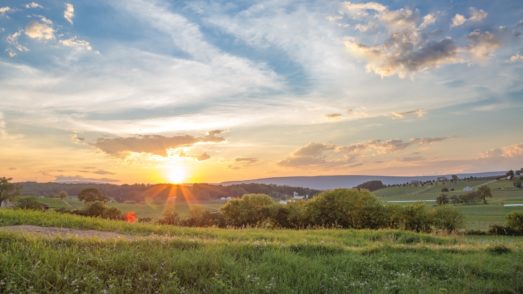
Favorite Place
My work community is State College, the town affiliated with Penn State University. State College is also one of our primary Sustainable Communities Collaborative partners, intent on a sustainable future. State College is about as urban as you can get in the mountains and pastoral landscape of central Pennsylvania. I like the energy and diversity that students bring to any space, and the creativity and skill they apply to sustainable solutions. My home community is about to change as I will be moving to a small hamlet of McAlevy’s Fort in central Pennsylvania, about 15 miles south of State College. Predominately rural but close to two state parks, I look forward to my new home – a remodeled 1860s house and adjacent former store. Until I get to know this new community better, my favorite thing will be making an old house a new home.
What was your first interaction with a school-community partnership project?
The first school-community project I observed was the final presentation of a senior communication class addressing traffic safety. I wasn’t quite sure what to expect and was blown away by the thorough and creative solutions the students presented. Not only did I learn to understand sustainability in its broadest definition and by the interconnected characteristic, but I gained a sense of hopefulness from the students’ delivery. This class of non-science students have become a cornerstone for my program as they learn about sustainability, understand its application and formulate solutions that change behaviors.
How did you first learn about EPIC-N?
My supervisor Michele Halsell sent me to the epic-n conference in Wisconsin.
What are some of the top priorities you are working on this year?
Programmatically I am focusing on deeper, more meaningful engagement, ensuring that projects meet their goals, promote or lead to change, and are followed up on by the community partner. In other words, that projects make a difference.
Strategically, we are exploring possible new and effective alignment with other institutes and services for greater impact of our outreach endeavors.
In what ways are you looking to engage, or work with others, either from within the EPIC-Network, or in general?
For us, the Epic-Network is first and foremost a resource for sharing best practices, to learn from others and similarly, make it available to our own network across our commonwealth campuses. At this conference in particular I hope to learn from Indiana University about their program given a similar rural environment, and how their epic-n work fits within the greater university context; I am also bringing colleagues with me who I would like to familiarize to the variations of the epic-n model so that they can carry out epic-n work at their campus.
Why do you think the EPIC-Network is important?
EPIC-N provides a framework that not only delivers a new approach to teaching and outreach for educational institutions, but a scalable structure that is applicable to communities of all sizes. As EPIC-N’s work expands I believe it can deliver resources to and advocate for the entire network and the communities engaged in addressing their sustainability challenges in a proactive manner.
What are you hoping attendees will take with them after attending your presentation?
I hope that attendees of our “Hope Wanted: From rust to Sustainability” can see the opportunities presented by the epic-n approach rather than the problem that is the impetus to consider engaging in new ways. I see the opportunities for engaged scholarship as the silver lining for addressing wicked problems and preparing future residents and leaders. Our title includes “hope wanted’, our delivery should provide ‘hope’.
Bio
Ilona Ballreich is the program manager of the Sustainable Communities Collaborative (SCC), a program of the Sustainability Institute at Penn State. Ilona works closely with faculty, students, and community partners to ensure meaningful, experiential student projects focused on the sustainability needs of the community. The SCC facilitates over 50 projects in primarily rural and small urban communities annually.
Ilona brings two decades of experience in community development to her position, including as executive director of a non-profit arts organization. She developed festivals and venues, authored newsletters, and conceived and edited a book about central Pennsylvania. She is trained in community development strategies and active in numerous community organizations. She holds a degree in industrial technology and architecture and is currently enrolled in the community and economic development masters of professional studies degree program at Penn State.

